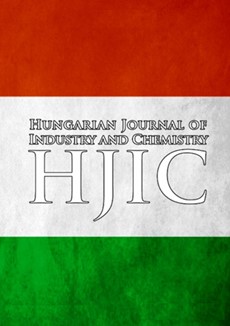A Study on the Rate and Mechanism of Thermal Degradation of Starch in Production of Flocculants
DOI:
https://doi.org/10.1515/108Abstract
Experiments and theoretical study were carried out to investigate the degradation rate and mechanism of starch molecules to establish suitable conditions of producing biodegradable flocculants by phosphorylation at elevated temperatures. The whole molecular weight range of original starch and the possible starch derivatives was divided into five intervals using an exponential scale. A Markov-chain stochastic model with transition probabilities from the higher molecular weight categories to the lower ones was proposed to analyze and explain the experimental findings. By fitting the model to the experimental data the transition probability values were determined for the studied process conditions. From these conclusions were drawn for the kinetics and possible degradation mechanism. It was concluded that the degradation of the molecules took place by splitting the molecules to several pieces, but no end-chain-scission mechanism was present under the studied conditions.Downloads
Published
2006-09-01
Issue
Section
Articles
How to Cite
A Study on the Rate and Mechanism of Thermal Degradation of Starch in Production of Flocculants. (2006). Hungarian Journal of Industry and Chemistry, 34(1). https://doi.org/10.1515/108




